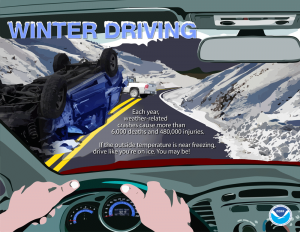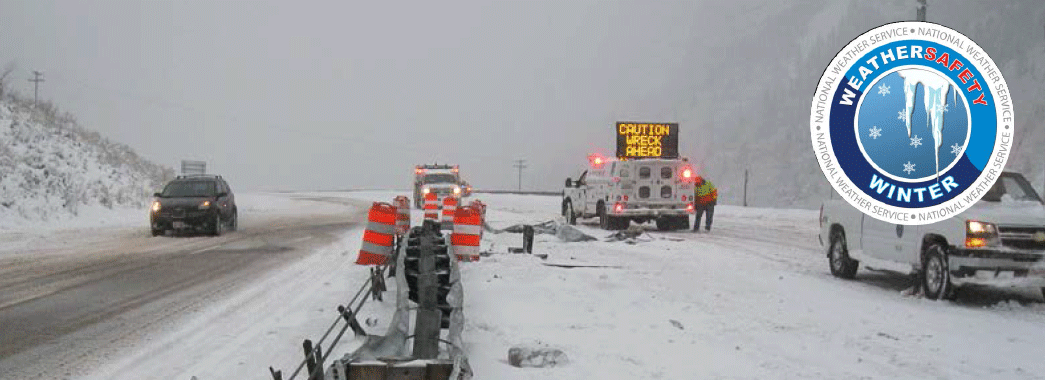I expect that many of us have witnessed a scene very similar to the above photo. In our immediate area it is a natural event to have severe winter weather that impacts driving conditions, sometimes to the extent that we really should not be on the road. Often just postponing travel for an hour or two may enable road crews to treat the roads and give the chemicals time to take effect on the snow and ice to provide a safer traveling environment.
If you have to travel, be prepared. First off be sure you are aware of what you are getting into with severe winter weather driving. Be sure your vehicle is ready to go with a full tank of fuel and appropriate tires in good condition. Consider some additional items such as a small shovel, sand or traction mats, chains for times it gets really bad and even a very good blanket such as wool or a Mylar reflective emergency blanket. Remember to keep the cell phone charged too. Common sense helps but too often it is not so common!
Many amateur radio operators who travel have an additional resource at hand that will help with gaining a little more information about the weather. That resource can be the 2 meter transceiver which may have the capability to receive the NOAA Weather Radio announcements. Some transceivers even have a feature that will activate an alert when the NOAA radio station broadcasts their severe weather alert. Another useful service often provided through APRS digi-peaters are text alerts about road conditions that may relate to road closures due to various issues such as traffic accidents. Also some repeaters transmit bulletins relative adverse weather and road conditions.
For much more information that may make your winter and 
your travel safer check out the link
http://www.nws.noaa.gov/om/winter/index.shtml
“Weather-Ready Nation Ambassador™ and the Weather-Ready Nation Ambassador™ logo are trademarks of the U.S. Department of Commerce, National Oceanic and Atmospheric Administration, used with permission.”









Leave a Reply